Phillip Hancock executed for 2001 double murder in Oklahoma City
- Oops!Something went wrong.Please try again later.
McALESTER — Death row inmate Phillip Dean Hancock was executed Thursday morning for a 2001 double murder after Gov. Kevin Stitt did not grant clemency.
In a final statement from the gurney, Hancock said he acted in self-defense "all the way," media witnesses reported.
Hancock was pronounced dead at 11:29 a.m. at the Oklahoma State Penitentiary after a lethal injection. He was 59.
The execution was set to begin at 10 a.m. It did not start on time because the Oklahoma Department of Corrections was waiting on a decision from the governor.
The Republican governor has now refused clemency three times to death row inmates. He has granted clemency once, to Julius Jones, on Nov. 17, 2021.
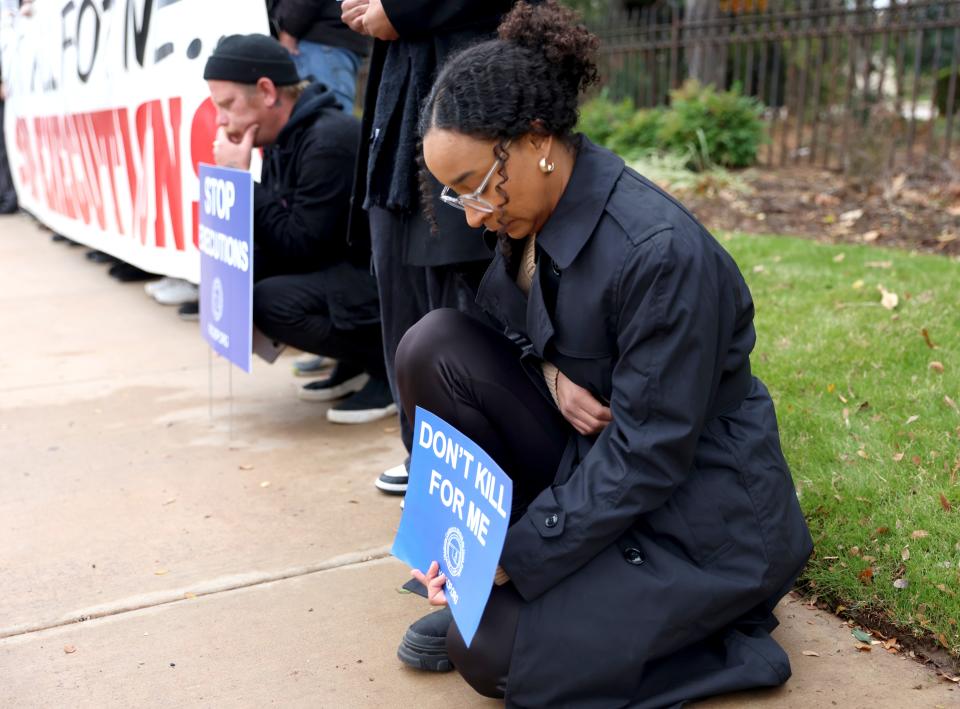
The latest refusal came even though Hancock had the support of some Republican legislators. His death sentences would have been changed to life terms without the possibility of parole if the governor had granted clemency.
“I can’t imagine the anxiety that Phillip Hancock must have felt as Governor Stitt ... waited until beyond the last minute to reject clemency," said Don Heath, chair of the Oklahoma Coalition to Abolish the Death Penalty.
What did Phillip Hancock admit about the shooting of Robert Jett, J.V. Lynch?
Hancock admitted to fatally shooting two men in Oklahoma City in 2001 but always maintained he killed in self-defense. The Oklahoma Pardon and Parole Board voted 3-2 on Nov. 8 to recommend clemency.
"I did what I had to do to save my life," he said via a video link during his clemency hearing.
He told the parole board that he fatally shot Robert Lee Jett Jr. at the biker's home in Oklahoma City early April 27, 2001, after being told to get into a cage.
He also admitted he fatally shot James Vincent "J.V." Lynch.
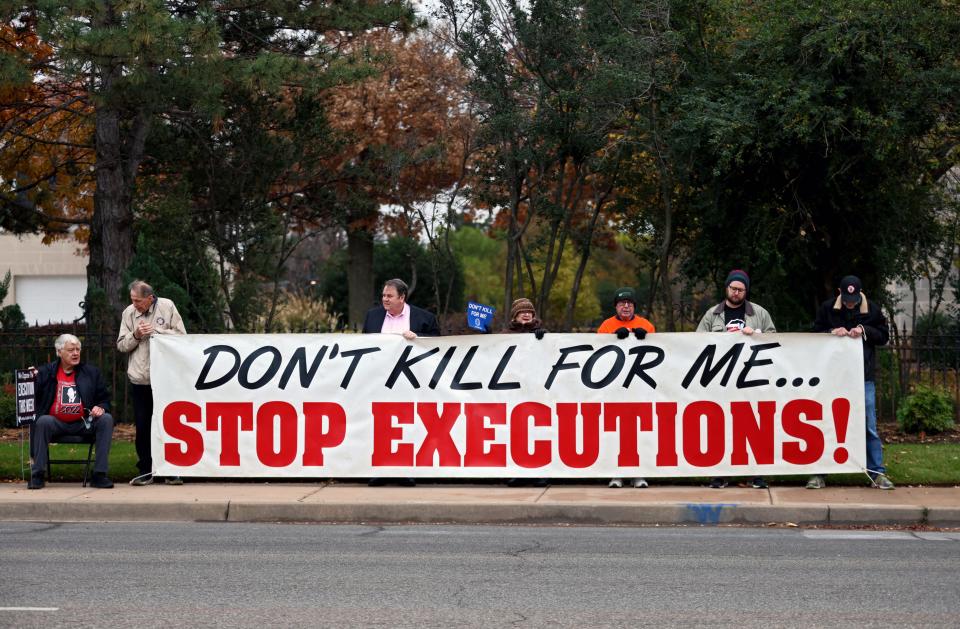
He claimed Jett, 38, was bludgeoning him with a metal tool while Lynch, 57, held him down in an armed bar chokehold. He said he shot after getting control of Jett's pistol.
An Oklahoma County jury rejected his self-defense claim in 2004, found him guilty of first-degree murder and chose death as punishment.
Afterward, the trial judge wrote in a report that Hancock attacked both victims without provocation.
The judge also noted Hancock "at no time expressed any remorse for the killings of Jett and Lynch and indicated instead that under a similar set of circumstances his response would be the same."
More: Oklahoma death row inmate Phillip Hancock recommended for clemency
Among the most damning testimony against him at trial came from an eyewitness.
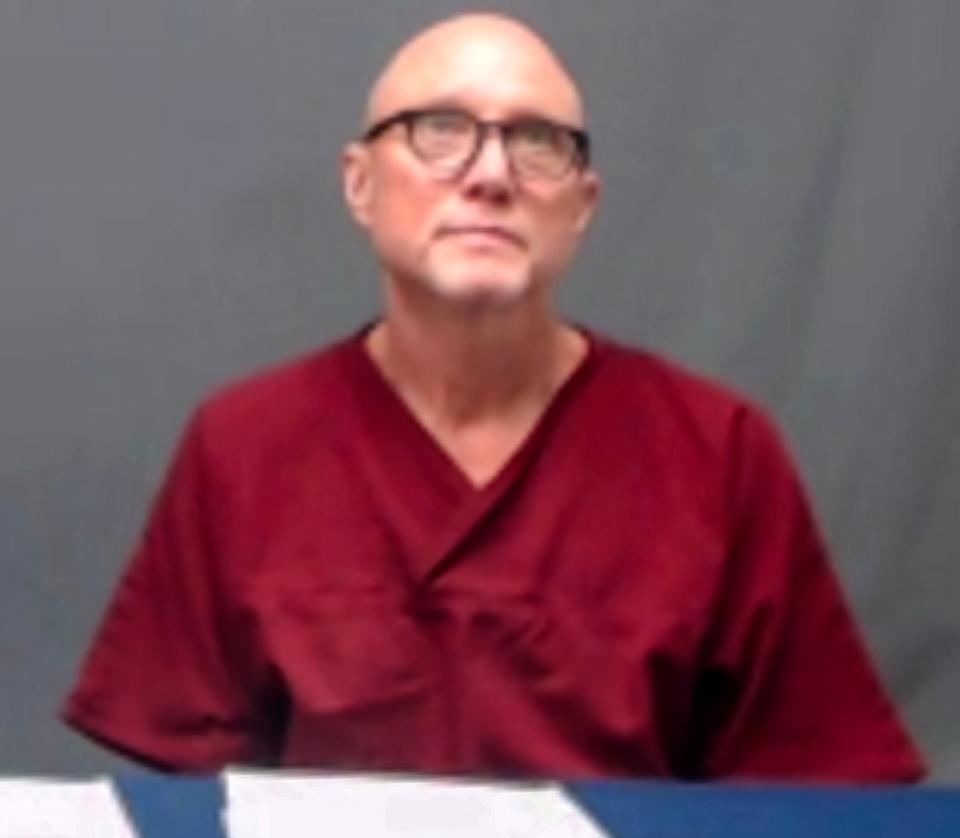
Shawn "Smokey" Tarp told jurors Hancock followed a wounded Jett into the backyard and shot the victim a final time. "I'm going to die," Jett said, according to her testimony. "Yes, you are," Hancock responded.
The men had had a disagreement about an open pack of cigarettes after ingesting methamphetamine. Hancock was living in Guthrie at the time.
In seeking clemency, Hancock's attorneys had submitted to the parole board a 2021 admission by his ex-girlfriend that she had asked Jett "to take care of Phil for me."
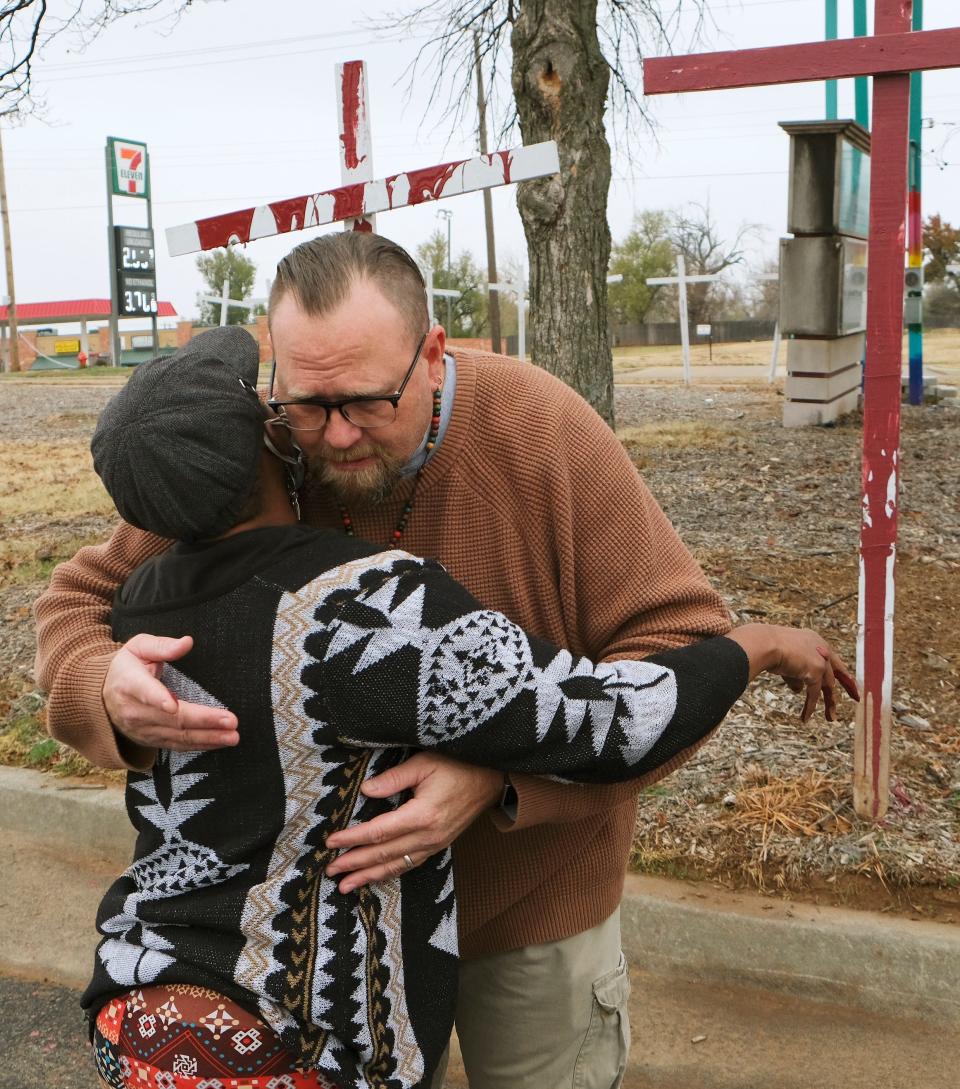
"I impulsively asked Bob if I could pay him a few hundred dollars to get Phil off my back," Katherine Quick said. "I didn't mean to put Phil's life in danger but I did. I wanted Bob to scare Phil but I wasn't considering how volatile Bob could be."
Hancock had been involved in a fatal shooting before, in 1982 at Oklahoma City's Stars and Stripes Park. He claimed self-defense at a murder trial and was convicted of first-degree manslaughter.
It was the state's 11th execution since capital punishment resumed in late October 2021 after a hiatus of more than six years.
Hancock had fried chicken and root beer for a last meal Wednesday.
Who is scheduled to be executed in Oklahoma next?
The next scheduled execution in Oklahoma is for James Ryder. He is set to be put to death on Feb. 1 for bludgeoning a 70-year-old woman to death in 1999 at her Pittsburg County home.
However, a delay is possible because questions about his mental competency have arisen. A clemency hearing scheduled for next Wednesday has been called off.
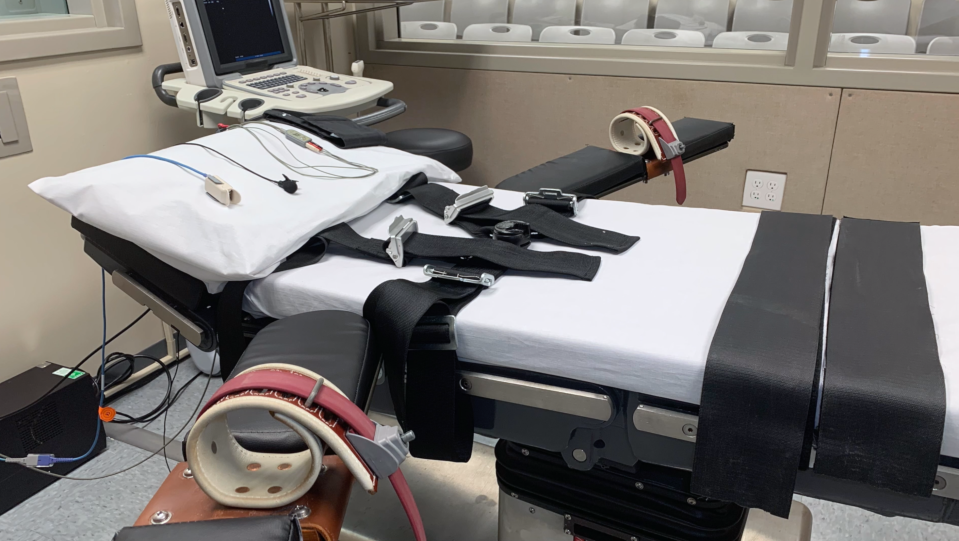
When has Stitt acted before?
The governor announced his decision to grant Jones clemency four hours before the execution was set to begin.
He denied clemency in 2021 to Bigler Jobe "Bud" Stouffer II a week before the execution. He denied clemency in 2022 to James Coddington the day before the execution.
The governor did not officially deny clemency to Hancock. Instead, he just didn't grant it, his office confirmed.
"These are always painfully difficult decisions to make and I don’t take this responsibility lightly," Stitt said. "The justice that twelve jurors decided on twenty years ago was final today. I reviewed the many facts and materials presented in this case and considered that this was not his first conviction. I trust this brings some closure to all the families involved."
The execution began at 11:15 a.m., about an hour after the governor's general counsel said to go forward, the Corrections Department director told reporters.
"As part of our process, we talk to the governor and the attorney general, their offices, multiple times," the director, Steven Harpe, said. "At the first phase of that ... is when we were told there were still things being considered. And then ... at 10:10, we got the 'go forward' command."
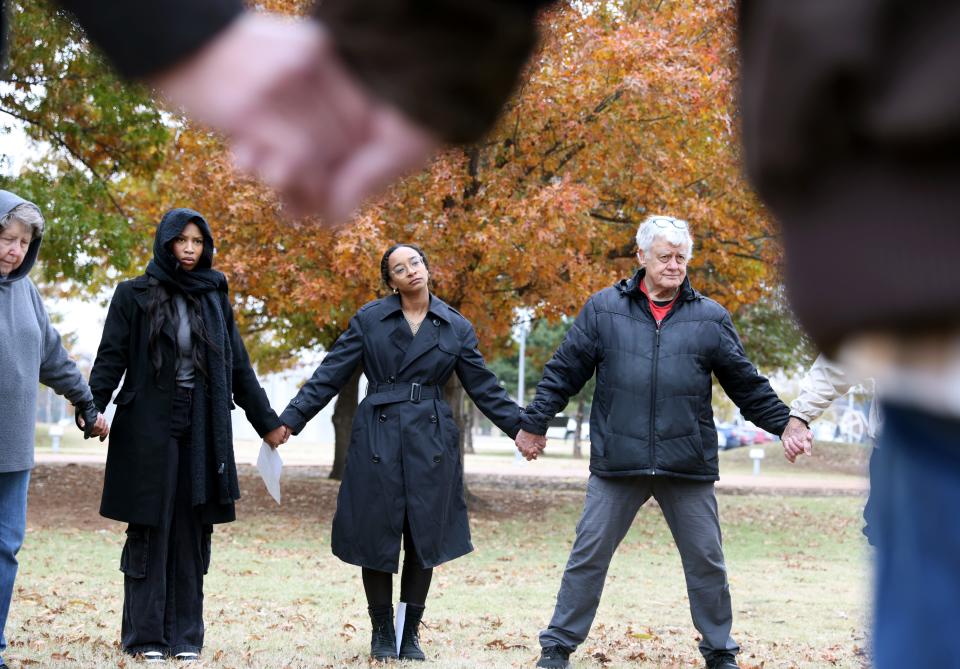
Playing a part in the delay was a late request from Hancock's attorneys to the governor to just postpone the execution, the director said.
Hancock's attorney, Shawn Nolan, said the governor "ignored a wealth of evidence showing that Phil was fighting for his life."
"All Oklahomans should be ashamed. May Phil rest in peace,” the attorney said.
Abraham Bonowitz, executive director of a national organization called Death Penalty Action, said the last-minute uncertainty Thursday "is just one more glaring example of how broken the system is in Oklahoma."
This article originally appeared on Oklahoman: Phillip Hancock executed in Oklahoma today for 2021 double murder

